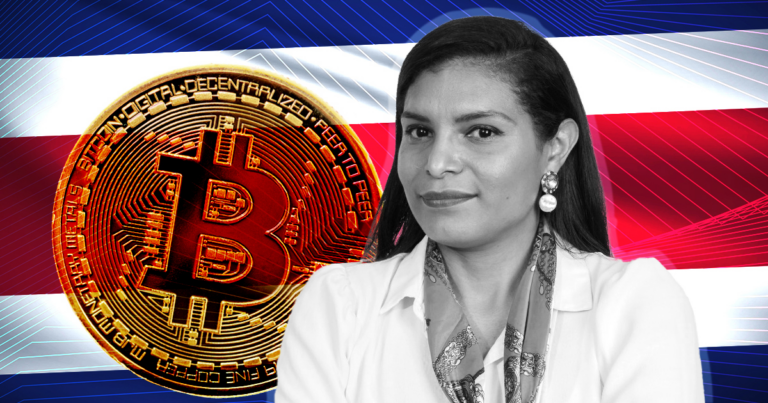 Costa Rican congresswoman proposes bill to regulate, recognize cryptocurrency
Costa Rican congresswoman proposes bill to regulate, recognize cryptocurrency Costa Rican congresswoman proposes bill to regulate, recognize cryptocurrency
Costa Rican Congresswoman Johana Obando proposed a crypto-friendly bill, titled "Cryptoassets Market Law (MECA)," to regulate and exempt crypto tax profits generated from mining activities.

Cover art/illustration via CryptoSlate. Image includes combined content which may include AI-generated content.
Costa Rican Congresswoman Johana Obando proposed a bill titled “Cryptoassets Market Law (MECA),” to regulate and recognize cryptocurrency in the Central American country.
The bill was proposed alongside Congressmen Luis Diego Vargas and Jorge Dengo, who also mentioned the government should not tax cryptocurrency profits generated from mining, but that profits from crypto trading should be taxed.
Obando took to Twitter to explain that the bill seeks to grant legal certainty to fintech companies, encouraging the digital economy’s growth and crypto-asset adoption. She also expressed her belief that the bill will open up Costa Rica to foreign investors and fintech companies as well as create job opportunities for Costa Ricans.
Additionally, the bill aims to preserve individual virtual assets, self-custody of crypto assets, and decentralization without interference from the Costa Rican government or banks.
Obando said she would like to welcome crypto investors into Costa Rica. She added that the motivation behind the proposed bill is to create a legal security framework for the industry to keep pace with crypto adoption is already underway in some parts of the country.
Crypto regulation in Latin America
MECA differs from El Salvador as it introduces cryptocurrencies as private virtual currencies that can be used and circulated freely, and it does not oblige businesses to accept cryptocurrency as a means of payment. As Bitcoin is a legal tender in El Salvador, businesses are required by law to accept Bitcoin as payment. Obando criticized the feasibility of a slow internet connection.
Costa Rica’s Latin American neighbor Paraguay is also working towards developing regulations to enforce governmental oversight on the Bitcoin mining industry, namely enabling mining energy supply as well as supervising mining investments by crypto companies and how mining companies manage digital assets produced from mining activities.





































































































